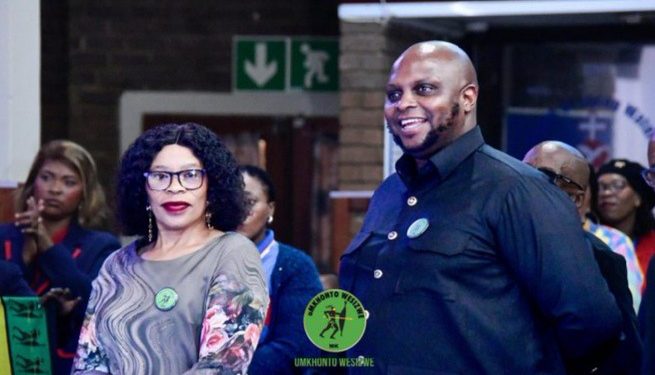In a seismic shift for South African opposition politics, uMkhonto weSizwe Party (MKP) Deputy Secretary-General Nombuso Mkhize has abruptly resigned to join Floyd Shivambu’s emerging Mayibuye Dialogue platform. The surprise move deals a significant blow to the MKP as it seeks to consolidate recent electoral gains.
Political insiders suggest Mkhize’s departure stems from growing disillusionment with the MKP’s post-election direction. “She’d become increasingly vocal about ideological drift and weak internal processes,” revealed a source close to the former deputy secretary. Her defection comes barely months after the MKP’s strong showing in national polls positioned it as a potential kingmaker.
The Mayibuye Dialogue – while not yet a registered party – has emerged as a gathering point for progressive voices dissatisfied with both ANC governance and opposition fragmentation. Shivambu’s platform has gained traction by advocating radical economic transformation and hosting unfiltered policy debates.
“This is about fearless conversations our country needs,” Mkhize stated tersely in her resignation note, conspicuously avoiding any praise for her former party. Analysts interpret the move as part of a broader realignment shaking South Africa’s political left.
“Traditional liberation movements are hemorrhaging intellectual capital to new formations,” observed political analyst Lebo Mashego. “Mkhize’s exit may trigger more high-profile defections from MKP’s moderate wing.”
The MKP’s silence on the matter has fueled speculation about internal divisions. Party insiders confirm an emergency national executive meeting was convened following Mkhize’s resignation, with some members pushing for immediate disciplinary action to deter further departures.
The development comes at a precarious moment for South Africa’s opposition landscape. With the ANC weakened but resistant to collapse, and the EFF facing its own internal challenges, platforms like Mayibuye Dialogue are positioning themselves as alternatives for disillusioned activists.
As coalition politics become increasingly complex, Mkhize’s gamble highlights the fluidity of political allegiances in South Africa’s evolving democracy. The coming weeks will reveal whether this marks an isolated incident or the beginning of a more significant realignment on the country’s left flank.






















